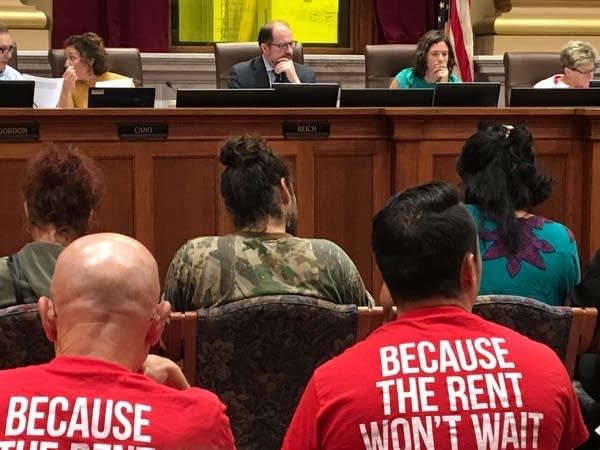Minneapolis council gives initial OK to $15 minimum wage plan

People packed the Minneapolis council chambers Wednesday, June 28, 2017, where city council members amended the proposed minimum wage ordinance.
Brandt Williams | MPR News
Go Deeper.
Create an account or log in to save stories.
Like this?
Thanks for liking this story! We have added it to a list of your favorite stories.


